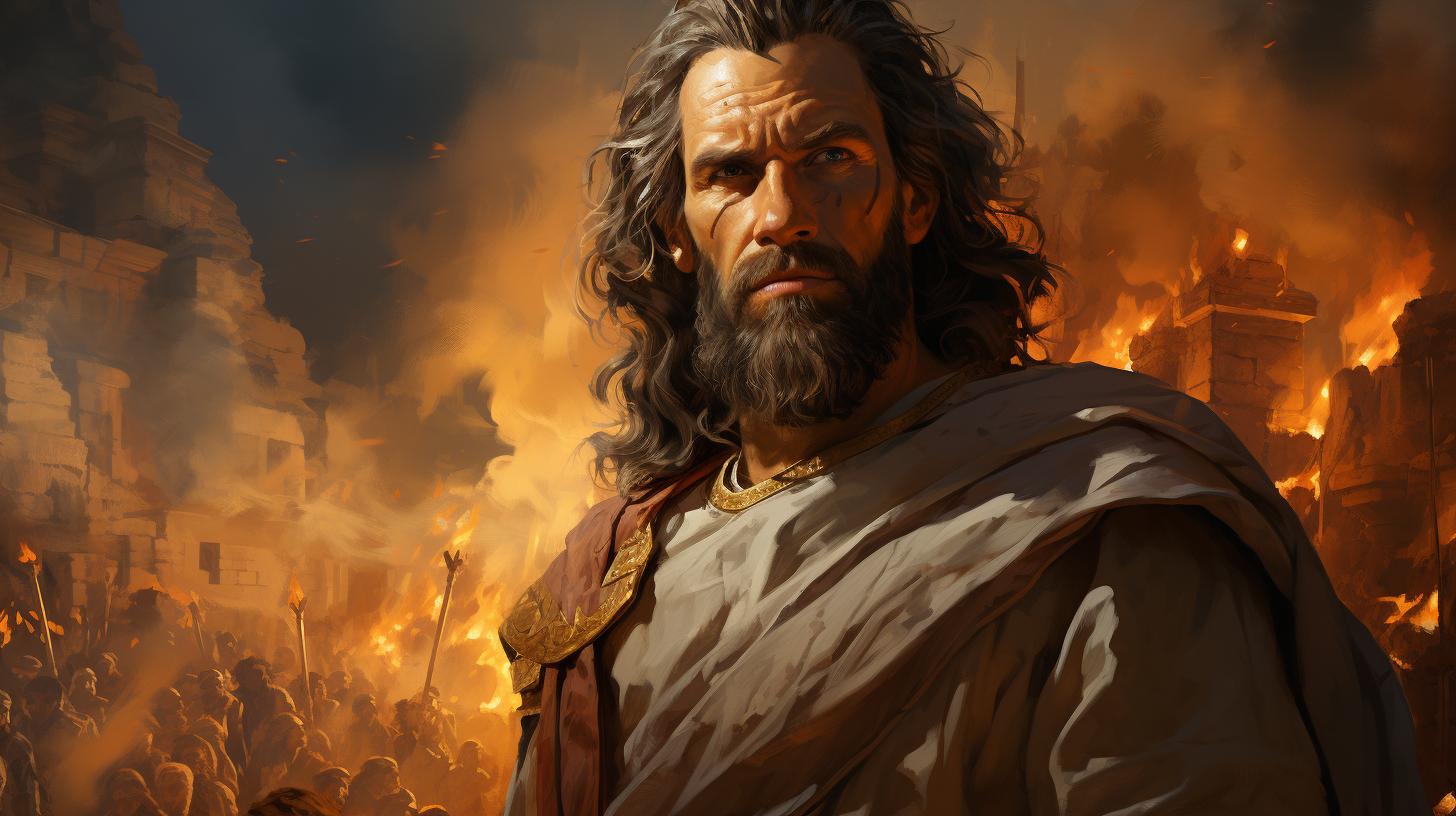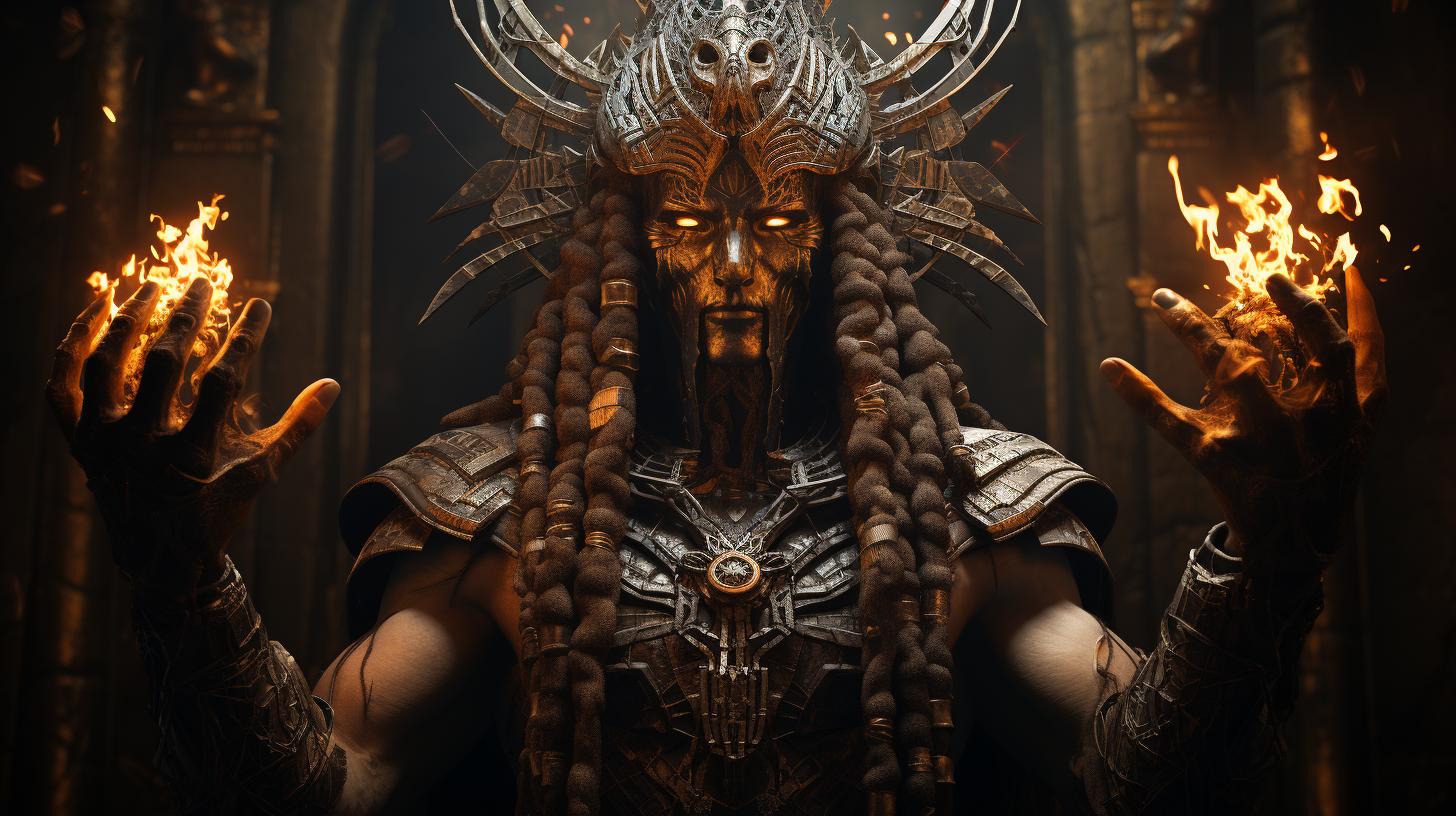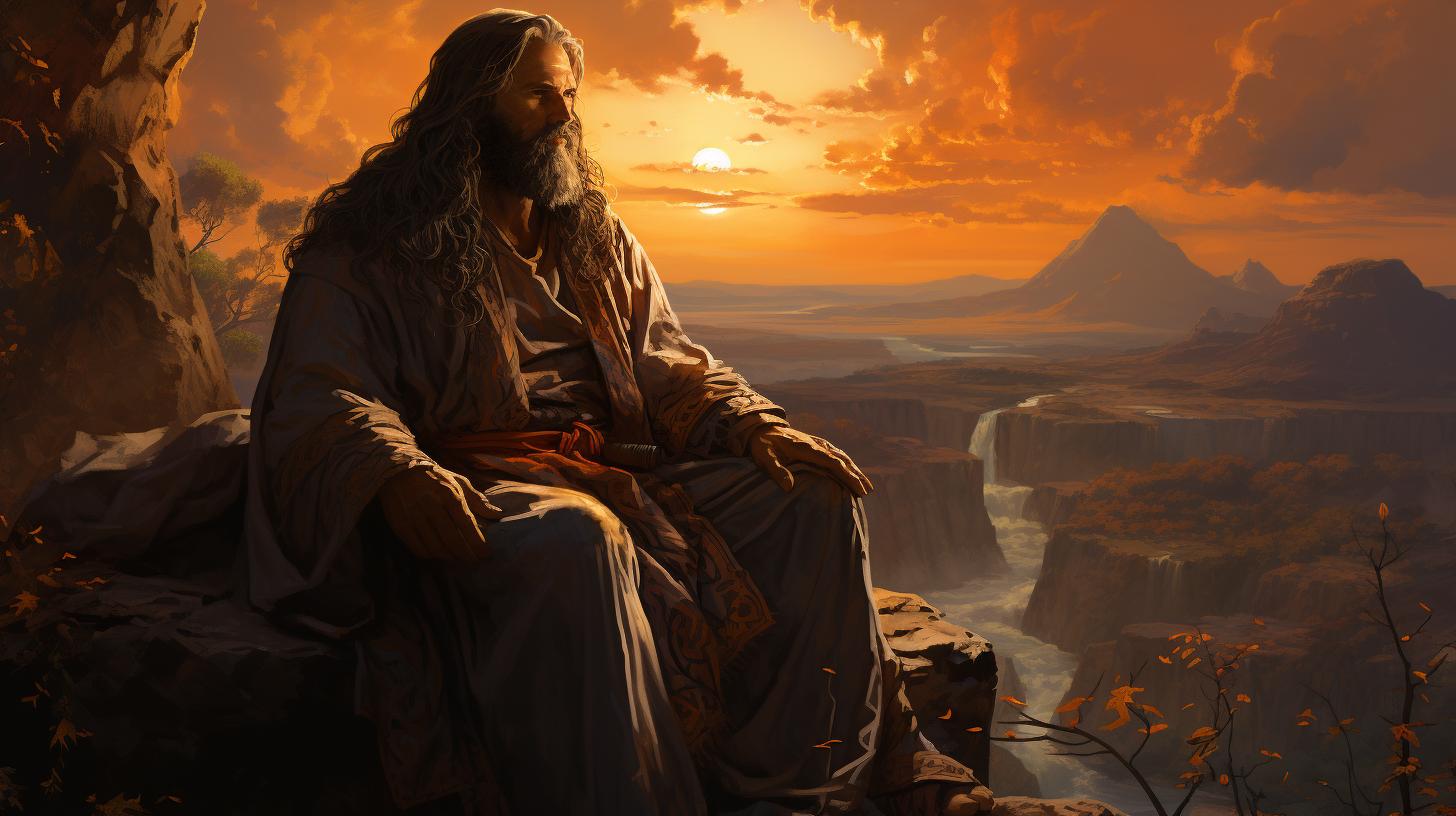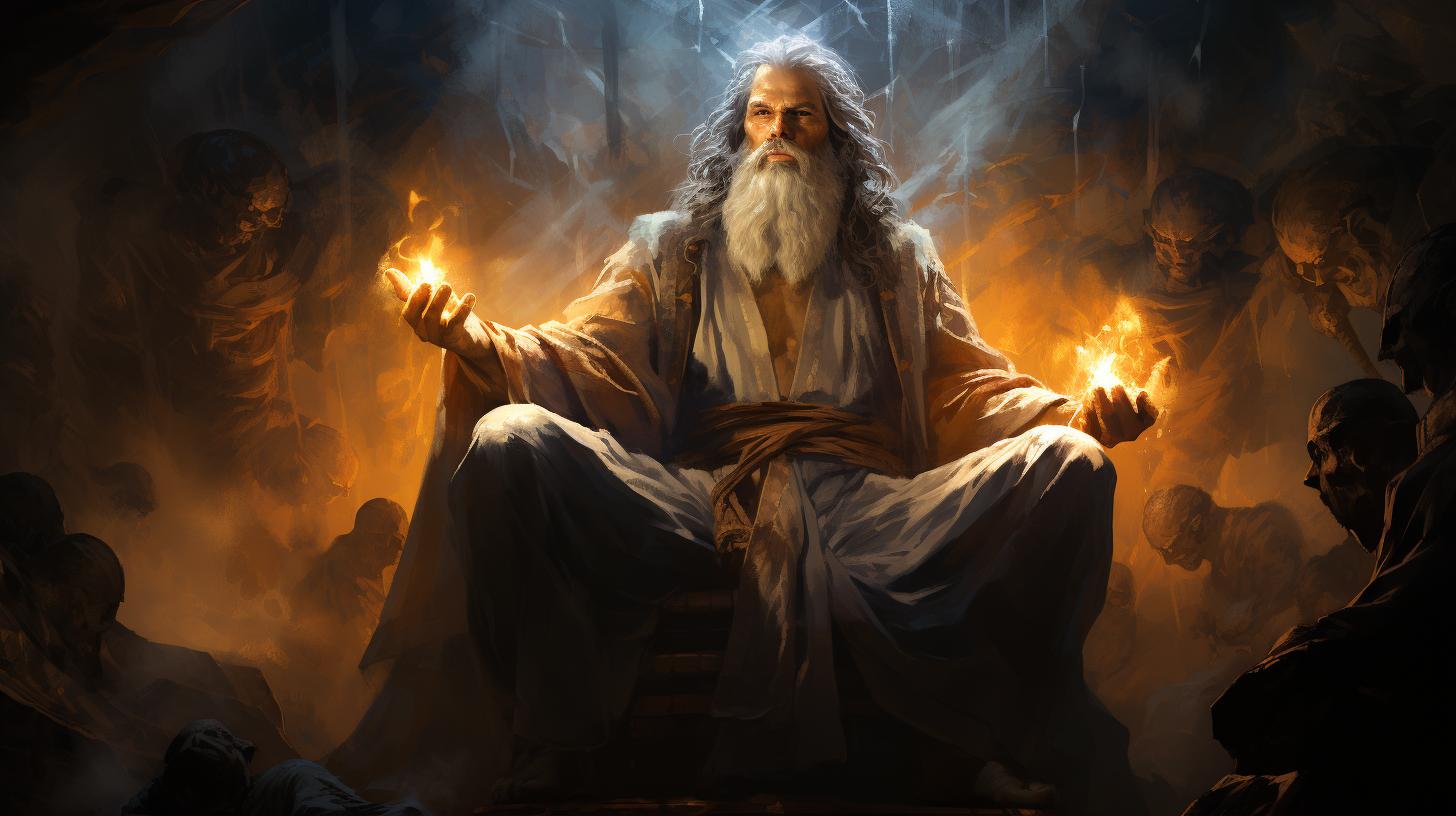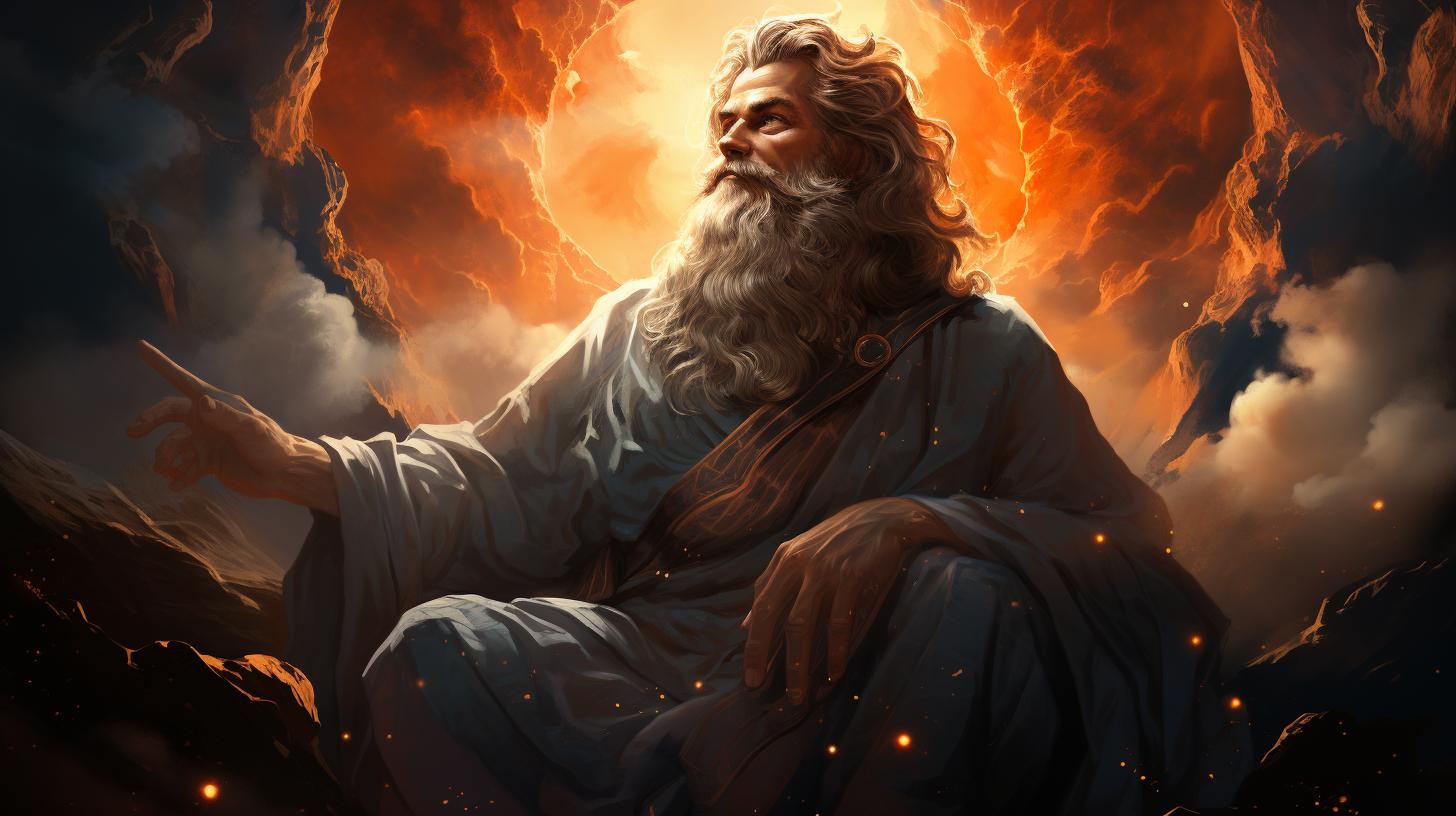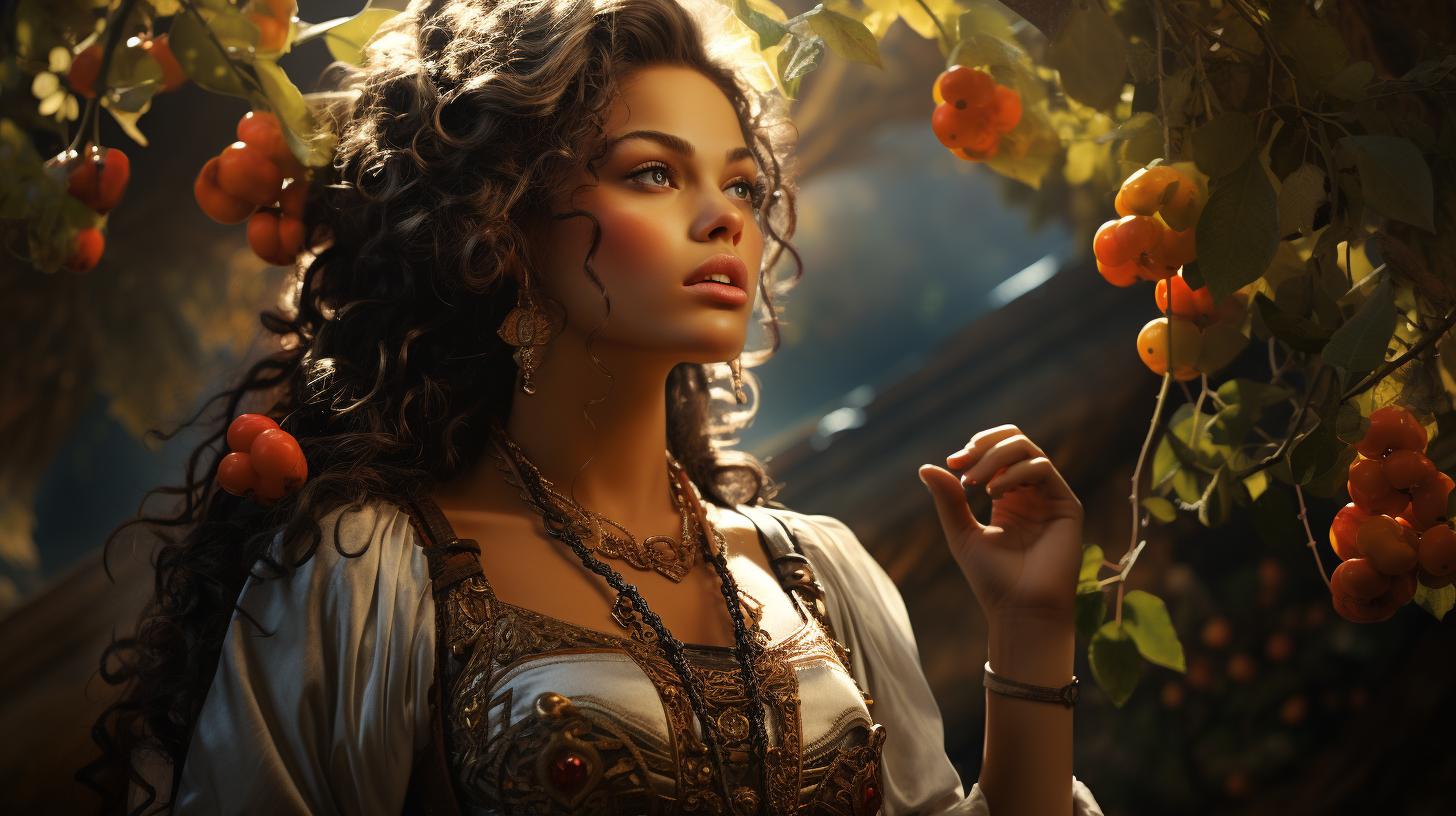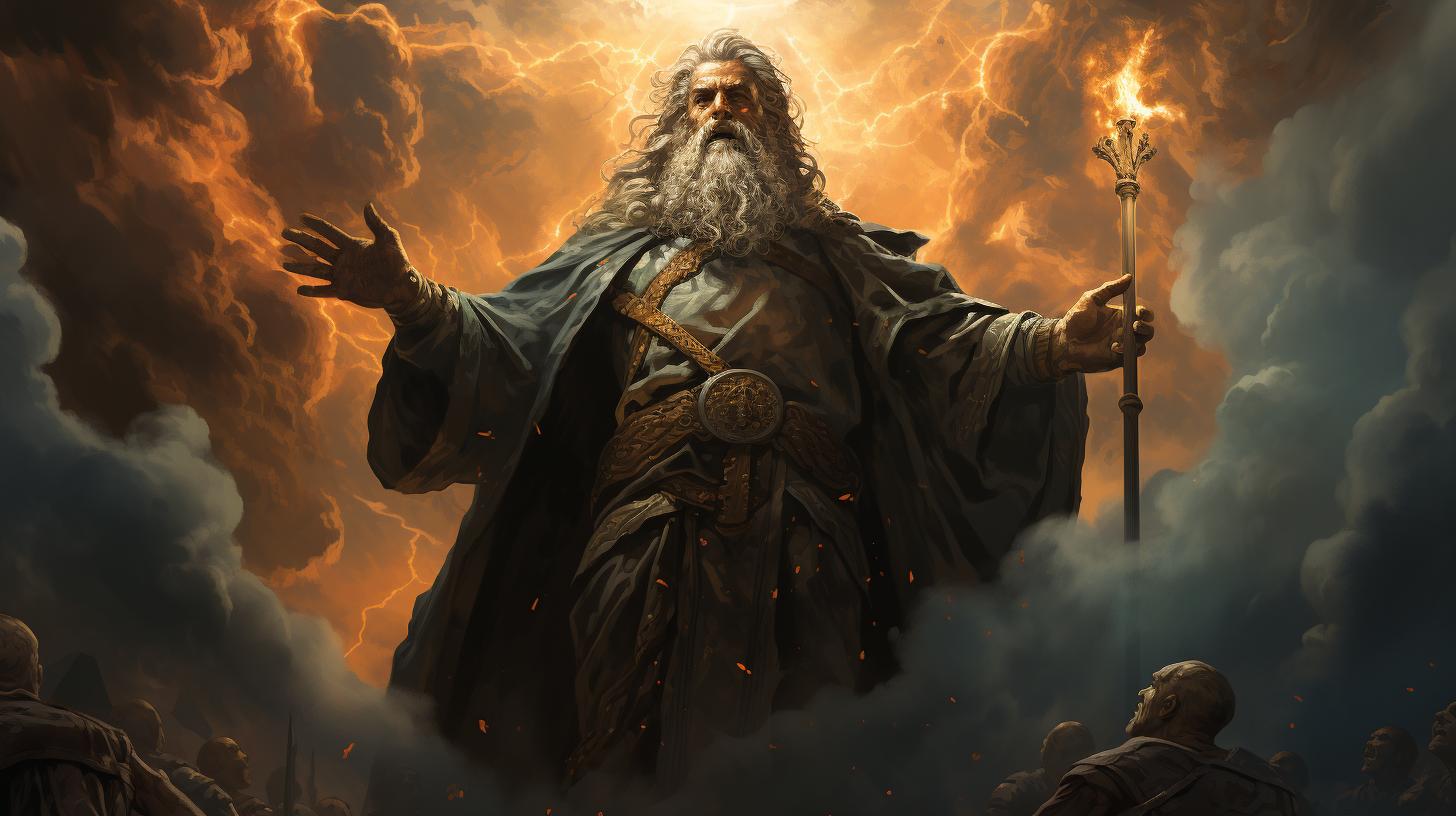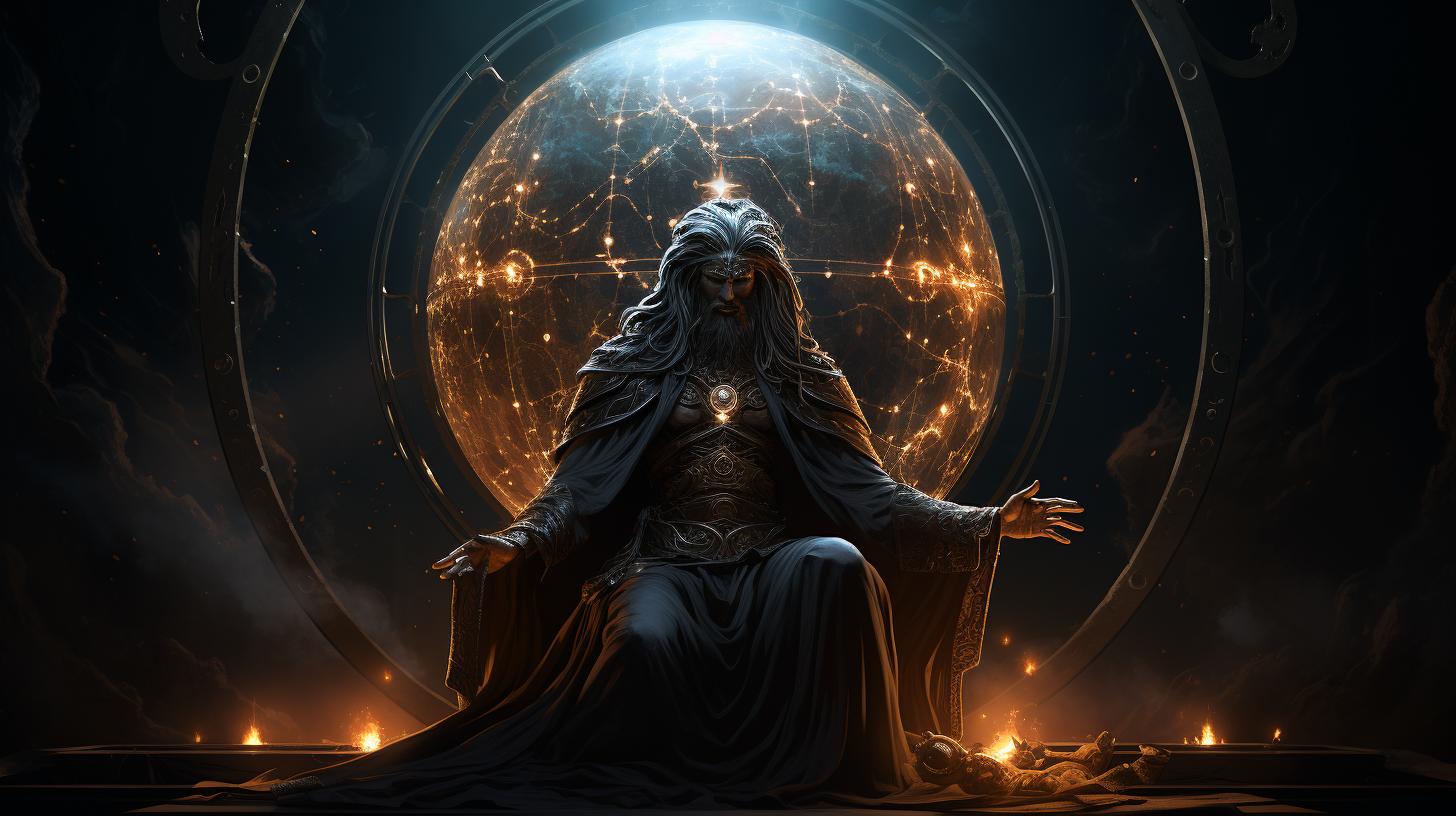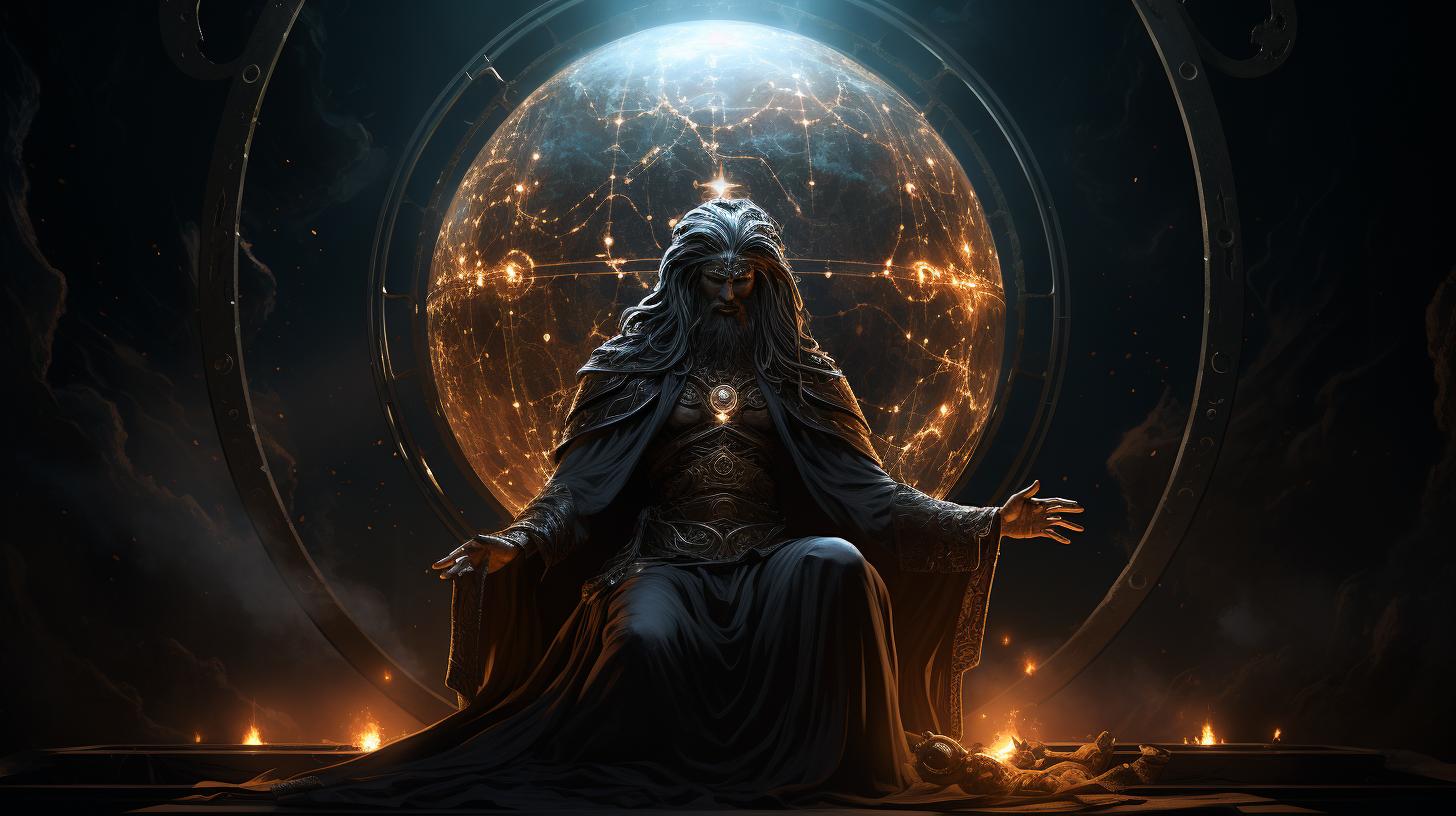Melqart: The Deity of Tyre and its Influence in the Mediterranean
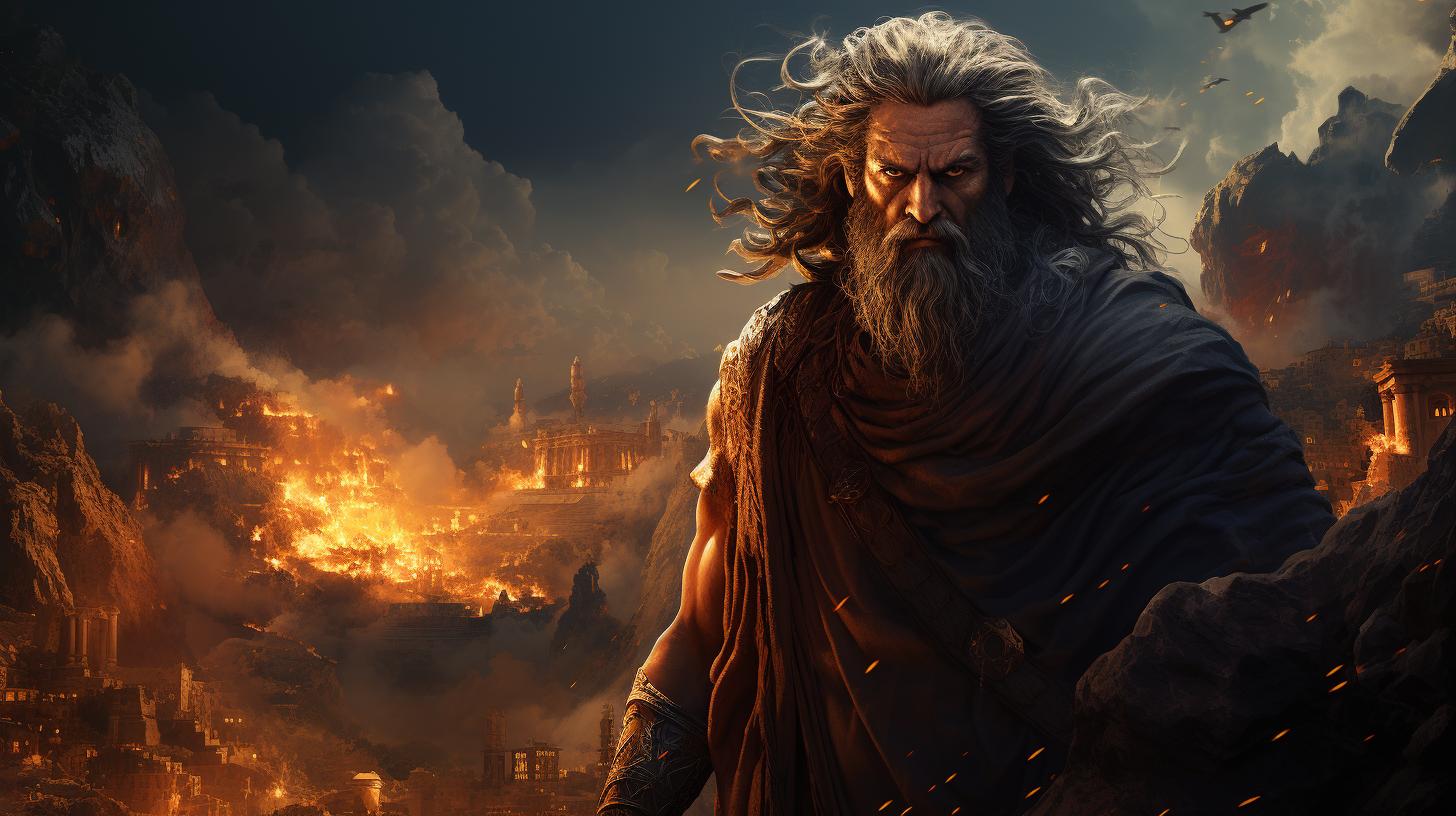
Melqart, the Phoenician god of Tyre, played a significant role in ancient Mediterranean culture. With origins rooted in Phoenician mythology, Melqart was revered in numerous colonies and associated with commercial success, colonization, and maritime prowess.
The Temple of Melqart in Tyre served as a central place of worship, characterized by its unique architecture and exclusive access. Mentioned in the Jewish scriptures, Melqart’s influence extended to biblical symbolism and historical evidence.
Identified with the Greek Heracles and the Roman Hercules, Melqart’s association with other deities further expanded his significance. His legacy endures in modern times, reflecting his enduring impact on Phoenician society and trade networks, as well as his connection to the realms of the dead.
Melqart: The Phoenician God of Tyre
Melqart, an important deity in Phoenician mythology, held a significant position as the god of Tyre. This section explores the origins and importance of Melqart, shedding light on the role he played in the Phoenician pantheon and his association with the city of Tyre.
Additionally, we will delve into the role of Melqart in Phoenician mythology, examining the stories and beliefs that surrounded this powerful god. Lastly, we will examine the relationship between Melqart and the Phoenician colonies, exploring the belief that many cities across the Mediterranean were founded and protected by him.
Origins and Importance of Melqart
Melqart’s origins can be traced back to the early Phoenician civilization, where he occupied a prominent place in the religious and cultural practices of the region. He was seen as a central figure in the pantheon of Phoenician gods, known for his association with kingship, trade, and maritime activities.
The Phoenician people believed that their city, Tyre, owed its success and prosperity to the favor of Melqart, making him a crucial figure in their collective identity.
Role of Melqart in Phoenician Mythology
In Phoenician mythology, Melqart played a multifaceted role as a deity associated with various aspects of life. He symbolized cycles of death and rebirth, similar to other gods such as Tammuz and Adonis.
Melqart was depicted with distinct attributes, including his bearded or sideburns-adorned appearance, wearing a lion’s skin or a shepherd’s hat. His symbols of life and death, represented by an ankh and a windowed axe, respectively, further emphasized his diverse nature within the mythological narratives.
Melqart and the Phoenician Colonies
One of the intriguing aspects of Melqart’s influence was his association with the Phoenician colonies established across the Mediterranean. Many cities believed to have been founded by Phoenician settlers regarded Melqart as their mythological ancestor and protector.
The colonies looked to him for guidance, ensuring their success in trade, colonization, and exploration. Melqart’s significance extended beyond Tyre, solidifying his role as a unifying god and a symbol of Phoenician cultural identity throughout the ancient Mediterranean world.
The Temple of Melqart in Tyre
The temple dedicated to Melqart in Tyre was not only a place of worship but also a remarkable architectural achievement representing the grandeur and religious significance of the deity. Situated in the heart of the city, the construction and architecture of the temple showcased the craftsmanship and devotion of the Phoenician people.
Construction and Architecture of the Temple
- The temple was constructed during the reign of Hiram in the 10th century BCE, reflecting the prosperous era of Tyre.
- It featured an impressive design with imposing columns, intricate carvings, and a majestic entrance adorned with symbols of Melqart’s power and deity status.
- The interior of the temple consisted of a central sanctuary surrounded by smaller chambers, with altars and offerings dedicated to Melqart.
- The grandeur of the temple’s architecture demonstrated the significance of Melqart in Phoenician society and the high esteem in which he was held.
Religious Practices and Worship at the Temple
- The temple of Melqart served as a focal point for religious practices, with devotees engaging in rituals, prayers, and offerings to seek favor and protection from the deity.
- Worshippers burnt incense, poured libations, and presented various offerings, including votive columns made of wood or stone, symbolizing their devotion and gratitude.
- Celebratory ceremonies and festivals dedicated to Melqart were held within the temple, marking important occasions and commemorating the deity’s role in Tyre’s prosperity.
- These religious practices were integral to the spiritual connection between the Phoenician people and Melqart, reinforcing their bond and ensuring his continued blessing upon the city.
Prohibition and Exclusivity in the Temple
- Uniquely, the sanctuary of the temple was accessible only to men, with women, foreigners, and even pigs prohibited from entering.
- This exclusivity served to maintain the sanctity of the temple and its religious rites, preserving the purity and divine connection between Melqart and his male devotees.
- These restrictions were a testament to the stringent religious practices and customs surrounding the worship of Melqart, reinforcing the sacred nature of the temple and its role in Phoenician society.
Melqart in the Bible: References and Significance
Mention of Melqart in Jewish Scriptures
Throughout the Jewish Scriptures, references to Melqart can be found, shedding light on the significance of this Phoenician deity.
Although not explicitly mentioned by name, Melqart is believed to be alluded to in various passages. The connections between Melqart and biblical stories contribute to a deeper understanding of Phoenician influence in the region and the religious beliefs of the time.
Interpretations and Symbolism in Biblical Context
Scholars and theologians have offered interpretations of the symbolism surrounding Melqart within the context of the Bible. The god’s association with cycles of life and death, as well as his role in maritime trade, is seen as reflective of larger spiritual themes and the interconnectedness of civilizations around the Mediterranean.
By exploring these symbols, we gain insights into the shared cultural and religious tapestry of the ancient world.
Historical Evidence of Melqart’s Influence
- Evidence from archaeological findings.
- References in ancient texts and inscriptions.
- Accounts of Phoenician colonies and their worship of Melqart.
- Depictions of Melqart in ancient art and iconography.
Excavations and historical research have provided concrete evidence of Melqart’s influence in ancient societies.
From temple structures dedicated to Melqart to inscriptions and depictions in artifacts, these findings corroborate the historical significance of Melqart and his enduring impact on Phoenician culture and beyond.
Melqart’s Association with Heracles and Other Deities
Melqart, the Phoenician god of Tyre, had strong associations with both Greek and Roman mythologies.
His identification with the Greek hero Heracles showcased the intermingling of cultures in the ancient Mediterranean.
Identification of Melqart with Greek Heracles
Melqart became closely aligned with the renowned Greek hero Heracles. Both deities shared similar attributes, such as immense strength and heroic exploits. This association stemmed from the interactions between Phoenicia and Greece, leading to the merging of their respective religious and mythological traditions.
Melqart’s connection to Heracles symbolized the intertwining of Phoenician and Greek cultures, highlighting the influence of Tyrian beliefs in the wider Mediterranean region.
Roman Equivalent of Melqart: Hercules
In Roman mythology, Melqart was equated with Hercules, the Romans’ own version of the Greek hero. This assimilation emphasized the cultural exchange between the Phoenicians and the Romans, as well as the recognition of Melqart’s significance beyond his original Phoenician context.
The amalgamation of Melqart with Hercules further solidified his standing as a prominent deity, honored and respected in diverse cultures across the Mediterranean.
Connections with Other Phoenician and Mediterranean Deities
Besides his associations with Heracles and Hercules, Melqart also maintained connections with various other Phoenician and Mediterranean deities.
These interconnections reflected the intricate theological tapestry of the ancient world. Notably, Melqart was synchronized with Eshmun and Asclepius in Cyprus and Ibiza, demonstrating the harmonization of different religious traditions.
Such syncretism highlighted the adaptability and inclusive nature of Melqart’s worship, as he merged with local deities to cater to the spiritual needs of diverse communities.
Melqart and Trade: Tyre’s Prosperity and Influence
Melqart played a crucial role in the commercial success of Tyre, making it a prominent hub of economic activity in the ancient Mediterranean.
Through his association with trade and navigation, Melqart became the patron of Tyre’s prosperous mercantile ventures.
Melqart’s Role in Tyre’s Commercial Success
Melqart was believed to bless Tyre’s traders and expeditions, ensuring their safe passage and profitable ventures. His divine protection and favor were sought by Tyrian merchants, who attributed their success to his guidance and support.
Impact of Melqart on Phoenician Trade Network
As the deity associated with navigation and exploration, Melqart greatly influenced Phoenician trade networks. His worship spread throughout the Mediterranean, leading to the establishment of colonies and trading posts in his name.
These settlements helped expand Phoenician influence and facilitated profitable trade routes across the region.
Trade Routes and Colonies Established in Melqart’s Name
- Through the worship of Melqart, the Phoenicians founded colonies such as Gadir (Cadiz) in Spain, Utica in North Africa, and Carthage in modern-day Tunisia. These colonies served as important trading hubs and allowed Tyrian merchants to access new markets.
- The Phoenicians strategically established trade routes along the Mediterranean coast, connecting their colonies and facilitating the exchange of goods and resources.
This network enhanced Tyre’s economic power and solidified its position as a key player in international trade.
- Melqart’s influence on trade extended beyond the Phoenician realm, as his worshippers included other Mediterranean cultures.
This widespread veneration further bolstered Tyre’s prominence in maritime commerce.
The commercial success of Tyre, driven by Melqart’s influence, allowed the city to amass wealth, expand its influence, and establish itself as a dominant player in the ancient world’s trade networks.
Melqart in Phoenician Society and Politics
Melqart as the Patron God of Tyre
Melqart held a significant position as the patron deity of Tyre, one of the most prominent Phoenician cities. The people of Tyre revered Melqart as the protector and guardian of their city, attributing their success and prosperity to his divine influence.
As the patron god, Melqart was venerated through elaborate rituals, prayers, and offerings, reaffirming the strong bond between the deity and the inhabitants of Tyre.
Melqart and the Monarchy of Tyre
Under the Phoenician monarchy, Melqart played a crucial role in legitimizing the ruling power and asserting their divine connection.
The association between Melqart and the Tyrian king was emphasized, with the monarch often depicted in religious ceremonies and rituals as the earthly representative of the god. This divine kingship concept reinforced the political structure and strengthened the authority of the ruling class in Phoenician society.
Melqart’s Influence on Phoenician Political Landscape
Melqart’s influence extended beyond Tyre and directly impacted the broader Phoenician political landscape. The prominence of his cult across Phoenician colonies and trade routes solidified his role as a unifying force among the different Phoenician city-states.
By upholding the worship and veneration of Melqart, Phoenician leaders sought to forge alliances, maintain political stability, and foster a sense of shared identity among the various Phoenician communities.
In conclusion, Melqart’s significance in Phoenician society and politics was multifaceted.
As the patron deity of Tyre, he was revered and considered instrumental in the city’s prosperity. The association between Melqart and the monarchy reinforced the divine authority of Phoenician kings. Furthermore, Melqart’s influence extended beyond Tyre, shaping the political landscape of the broader Phoenician world by fostering cultural unity and political stability.
Melqart in the Underworld and Beyond
Melqart’s Connection to the Realm of the Dead
Melqart’s influence extended beyond the realm of the living, encompassing beliefs and connections to the underworld. In Phoenician mythology, Melqart was believed to have dominion over the afterlife, guiding souls to the realm of the dead.
He was associated with the journey of the soul from the mortal world to the realm of eternal rest, ensuring a safe passage and divine protection. This connection to the underworld highlighted Melqart’s role as a divine mediator between the mortal and spiritual realms.
Beliefs and Rituals Associated with Melqart’s Afterlife
Phoenician beliefs regarding the afterlife included the concept of immortality and the idea that the soul continued to exist in the realm of the dead. Worshipers of Melqart engaged in various rituals and practices to honor and communicate with the deceased.
These included offerings of food, drink, and precious objects, as well as prayers and ceremonies held in sacred spaces dedicated to Melqart. Individuals sought the favor of Melqart to ensure the well-being and protection of their loved ones in the afterlife.
Melqart’s Legacy and Continued Worship in Modern Times
Despite the passage of millennia, Melqart’s legacy and influence persist in contemporary times. The worship of Melqart, although evolved, continues to be observed by a dedicated group of individuals who revere the ancient Phoenician deity.
Rituals and prayers are still performed to pay homage to Melqart’s connection to the afterlife and seek his blessings and protection. Additionally, Melqart’s role as a deity associated with trade and commerce is reflected in the continued importance of maritime activities and commercial endeavors in regions with historical ties to the Phoenician civilization.
- Melqart’s connection to the realm of the dead highlighted his divine authority over the afterlife.
- Beliefs surrounding the afterlife emphasized Melqart’s role as a mediator between the mortal and spiritual realms.
- Rituals and offerings were conducted to honor and communicate with the deceased under the guidance of Melqart.
- In modern times, a devoted group of worshipers continues to observe the traditions associated with Melqart.
- Melqart’s association with trade and commerce persists in regions with historical ties to Phoenician culture.
.

